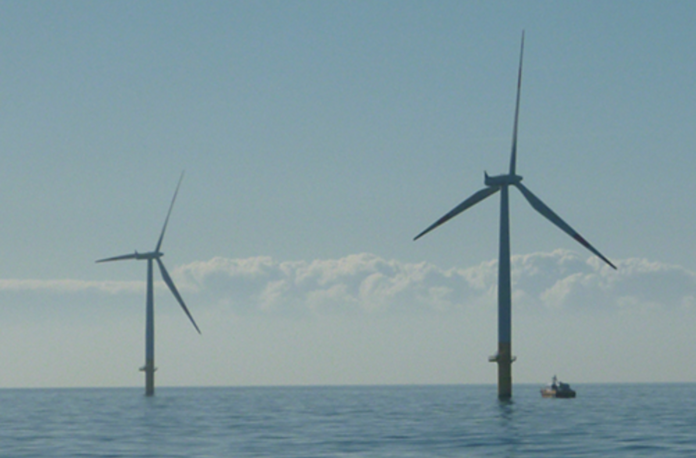DNV has launched a new collaborative research project to develop an automated data processing procedure for verification of detected wind turbine blade defects, with the aim of building trust and generating broader acceptance of automated data processing techniques across the industry and to inform future regulation.
The research project, which is being conducted in partnership with the University of Bristol and Perceptual Robotics, an SME specializing in visual inspection of wind turbines using drones, will investigate the automated verification, validation and processing of inspection data, collected by autonomous drones, to improve inspection quality and performance.
Unmanned autonomous and remote-controlled vehicles and drones are routinely used to conduct asset inspections in the hard to reach, extreme environments of offshore wind farms. These vehicles can collect extensive data sets including high-definition video, images, geo-positioning and sensor data, to provide integrity information about the installed structures without personnel having to access these dangerous locations.
The research project, which will run for 12 months, will address the need for fully automated processing of the data collected, where currently this remains a semi-automated process with reliance on visual inspections of image data by trained experts.
“With many inspections still being carried out manually, visual inspection of offshore wind turbines is expensive, labor-intensive and hazardous,” says Dr. Elizabeth Traiger, senior researcher in digital assurance at DNV. “Automatic visual inspections can address these issues. This collaboration will develop and demonstrate an automated processing pipeline alongside a general framework with the aim of generating broader acceptance across the industry and informing future regulation. This project should provide a stepping-stone to the growth of the automated inspection industry.”
As part of the project, the Visual Information Lab at the University of Bristol, experts in 3D computer vision and image processing, will create algorithms for automated localization of inspection images and defects using SLAM and 3-D tracking technology.
Perceptual Robotics will perform drone inspections and create AI-based models for defect detection to trial automation of process in a commercial production environment. DNV will provide inspection expertise, verify data collected, validate the methodology and performance of the AI algorithms, and provide guidance as to existing DNV and IEC recommend practices, regulations and industry networks.




